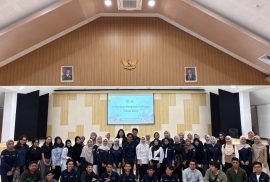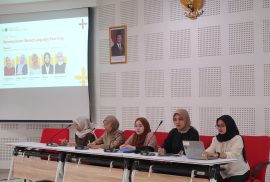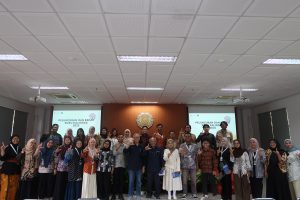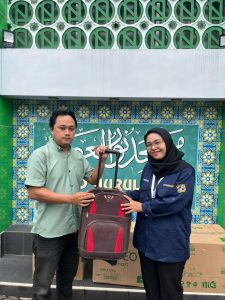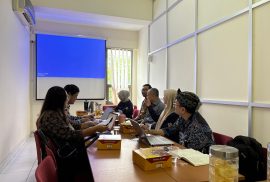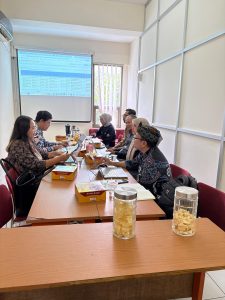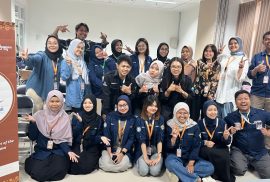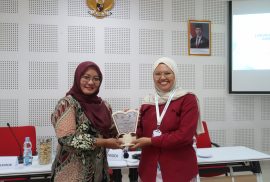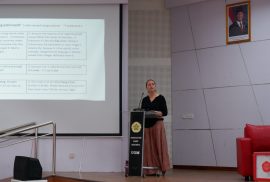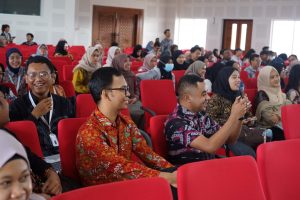Magister Linguistik welcomes the new semester with a Student Gathering in Auditorium Gedung Poerbatjaraka on February 9th, 2026. This event plays a pivotal role in tightening the relationship between students and lecturers. The activity consisted of a presentation from the study program, which provided important information about academic regulations, research opportunities, and plans. In addition, the forum served as a space to gather various questions from active students of the Master’s Program in Linguistics. The new Head of Study Program, Dr. Hayatul Cholsy, S.S., M.Hum, and the Secretary of Study Program, Dr. Wira Kurniawati, MA. lead the lively discussion between the program and the students. This interactive session allowed students to express their concerns, share suggestions, and gain a clearer understanding of the program.

The event was attended by lecturers as well as students from the 2024 and 2025 cohorts. Their presence created a warm and engaging atmosphere, encouraging open discussion between students and faculty members. Rizky Alida, a student staff member, explains that, “although the gathering was conducted simply, I believe this forum is highly necessary for the future development of the study program. It strengthens communication and builds a sense of community among academic members.”
The newly elected head of Kalingga 2026, Moh. Nawalul Fawaid El Haqi, also expresses his aspirations for the student organization. “I hope Kalingga 2026 can become a real space for movement and collaboration, especially for students, to contribute actively to the advancement of the Master’s Program in Linguistics UGM.”

